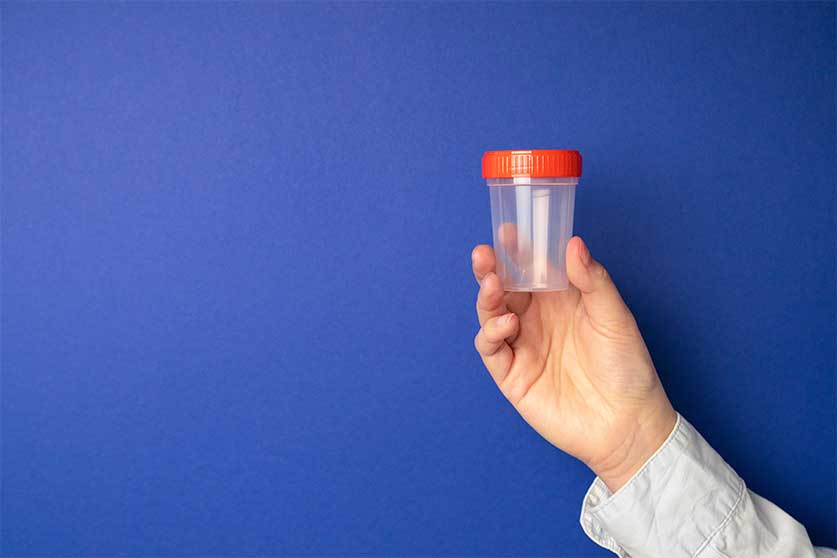Carfentanil Half-Life & Drug Test Detection Times

Medically Reviewed By: Manish Mishra, MBBS
Carfentanil is an ultra-potent and lethal derivative of the analgesic drug fentanyl sometimes used in veterinary medicine as a large animal tranquilizer. It has no valid medical use in humans and is typically detected by drug tests only in the context of public health toxicology tests.

Carfentanil is an analogue of the synthetic opioid drug fentanyl, which is sometimes used to provide a high level of medical analgesia.
While fentanyl is known to be up to 100 times more potent as morphine, carfentanil can be 100 times more potent still with amounts as small as a single salt crystal or dust mote being lethal if ingested.
As with other opioids, carfentanil exposure can be detected using laboratory testing for varying periods of time, though this is uncommon outside of testing performed after opioid overdoses and overdose deaths.
Carfentanil is currently classified as a Schedule II controlled substance, though it has no approved medical use in humans.
Carfentanil Half-Life
Carfentanil, like fentanyl, is a fast-acting opioid receptor agonist. Carfentanil, however, has a significantly longer elimination half-life of around 5.7 hours or longer. This represents the amount of time it takes the human body to metabolize and eliminate one half of a dose.
The metabolism of carfentanil in the body also generates a major metabolite, norcarfentanil, which is known to have an even longer half-life of around 11.8 hours.
Therefore, carfentanil use may be detectable by the presence of nor carfentanil even after the drug it originated from has been fully removed from the body.
Carfentanil Detection Times
Carfentanil and other fentanyl analogs are not typically tested for or detected in typical drug tests. This is because, as an ultra-potent opioid, those who take it generally die within a very short period of time or are hospitalized.
In fact, the drug (or its metabolites) is generally only ever detected in evidence samples or blood samples with the use of liquid chromatography-tandem mass spectrometry assays or high-resolution mass spectrometry, as part of public health investigations into overdose events.
Fentanyl Detection Times
Fentanyl, in contrast, can often be detected using standard drug testing protocols for the following periods of time:
- urine tests: 24-72 hours
- blood test: 5-48 hours
- saliva tests: 1-4 days
- hair testing: 90 days (assuming a regular pattern of use and sustained plasma concentrations)
How Carfentanil Works
Carfentanil acts as a μ-opioid receptor (mu-opioid receptor). This means that it targets and activates opiate receptors in the brain, changing the way a person experiences pain.
This activation, in high doses or with high potency drugs, can also generate a highly addictive euphoria and central nervous system sedation.
Strong Effects For Counterfeit Drugs
Carfentanil is not abused specifically but has been used as a component of illicit drug mixtures or counterfeit pharmaceuticals, with the goal of producing a stronger product for dealers to distribute with lower overhead.
This has resulted in mass-fatality events in Ohio and other states where dozens or hundreds of people in a single area overdose over a short period of time.
There are also a number of other fentanyl analogues known to have circulated, including sufentanil, acetyl fentanyl, 3-methyl fentanyl, and furanyl fentanyl, which are likewise excessively strong and dangerous substances.
Carfentanil Overdose
When a person takes carfentanil, severe overdose symptoms generally develop very rapidly and can include:
- immobilization
- constricted, pinpoint pupils
- gasping or gurgling, sometimes referred to as the death rattle
- loss of consciousness
- loss of consciousness or ability to respond to others (coma)
- mental impairment and confusion
- nausea and vomiting
- pale, blue-tinted, or clammy skin
- reduced body temperature
- slow, shallow, or absent breathing (respiratory depression)
- weak, slow, or stopped pulse
If you suspect an overdose has occurred, immediately contact your emergency services and provide first-aid until help arrives. Do not touch, taste, smell, or breathe in the drug, as this could lead to fatal carfentanil exposure in yourself as well.
Treating Carfentanil Overdose
Because of its toxicity, carfentanil has developed a variety of striking street names including gray death, serial killer, and drop dead. However, carfentanil overdoses can be treated using opioid antagonists, especially the opioid rescue medication naloxone (Narcan).
First responders and healthcare professionals can also provide advanced care for victims, including additional naloxone doses, resuscitation, intravenous fluids, ventilation and other life-support care, and other interventions as needed.
Avoiding Carfentanil Exposure
Ohio Recovery Center offers leading inpatient care to help you exit the opioid crisis and recover from opioid use disorder in a supportive, comfortable, and highly focused environment.
Our treatment options include medication-assisted treatment (MAT) using naltrexone, methadone, or buprenorphine along with behavioral therapy in group and individual settings.
To learn more, please contact us today.
- Addiction — Carfentanil and the Rise and Fall of Overdose Deaths in the United States https://www.ncbi.nlm.nih.gov/pmc/articles/PMC8019064/
- Centers for Disease Control and Prevention (CDC) — Notes from the Field: Overdose Deaths with Carfentanil and Other Fentanyl Analogs Detected — 10 States, July 2016–June 2017 https://www.cdc.gov/mmwr/volumes/67/wr/mm6727a4.htm
- Drug Enforcement Administration (DEA) — DEA Issues Carfentanil Warning To Police And Public https://www.dea.gov/press-releases/2016/09/22/dea-issues-carfentanil-warning-police-and-public
- Pharmacotherapy — The Pharmacokinetics and Pharmacodynamics of Carfentanil After Recreational Exposure: A Case Report https://accpjournals.onlinelibrary.wiley.com/doi/10.1002/phar.2117

